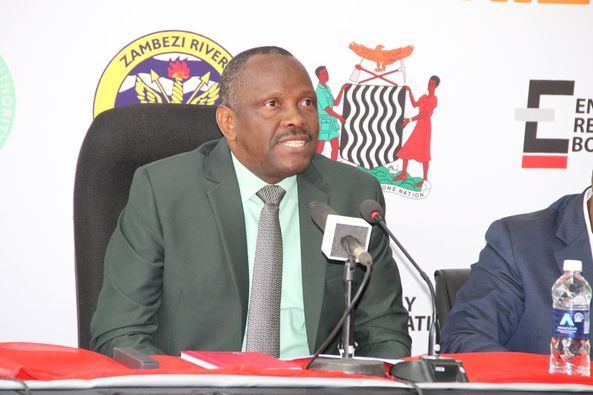Zambia Extends Load Shedding to 17 Hours Amid Worsening Power Crisis
Zambia’s Minister of Energy Hon. Makozo Chikote has announced significant updates as the country grapples with a worsening power crisis.
Speaking at the Energy Regulation Board Auditorium on Friday, August 16, 2024, the minister confirmed that load shedding hours will be extended to 17 hours daily, starting September 1, 2024, due to a severe power deficit.
Minister Chikote emphasized the ongoing efforts by the government to address the power deficit, which currently stands at 1,510 megawatts. With only 890 megawatts of power generation available against a national demand of 2,400 megawatts, ZESCO Limited has been importing 496 megawatts from the region, leaving a net deficit of 1,014 megawatts. This shortfall has led to the decision to extend power rationing hours.
The minister also highlighted the critical water situation, with the Kariba Dam’s usable water levels at a concerning 10%, further straining power generation capacity.
He warned that ZESCO’s impending depletion of water allocation at Kariba, along with scheduled maintenance at the Maamba Power Plant, will exacerbate the deficit by an additional 435 megawatts in September.
Despite these challenges, the minister reassured the nation that the government is actively pursuing additional power imports and has secured 168 megawatts from South Africa’s Eskom, with another 50 megawatts expected from the Southern African Power Pool (SAPP) by August 21, 2024.
Minister Chikote also provided updates on several key initiatives aimed at mitigating the crisis, including the government’s approval of additional incentives for solar, geothermal, and liquefied petroleum gas (LPG) equipment.
The Rural Electrification Authority (REA) has completed three new solar mini-grids in Zambezi, Chilubi, and Lundazi districts, bringing the total to 13 operational mini-grids across the country.
In his closing remarks, the minister urged citizens to adopt energy conservation measures and fully exploit government incentives for renewable and alternative energy sources.
He reiterated the government’s commitment to resolving the power crisis and ensuring a diversified and resilient energy future for Zambia.



